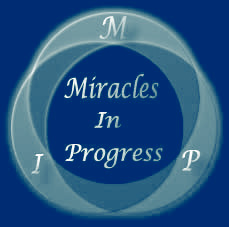Though our decision (step 3) was vital and crucial step,
it could have little permanent effect
unless at once followed by a strenuous effort
to face, and to be rid of, the things in ourselves which had been blocking us.
Resentment
It is plain that a life which includes deep resentment leads only to futility and unhappiness
p66
this business of resentment is infinitely grave
p66
To the precise extent that WE permit these..
p66
for alcoholics these things are poison
p66
We saw that these resentments MUST be mastered
p64
From it stem ALL forms of spiritual disease
p64
When the spiritual malady is overcome, we straighten out mentally and physically
p66
If we were to live, we HAD to be free of anger
p64
Resentment is the "number one" offender. It DESTROYS more alcoholics than anything else
p66
To conclude that others were wrong was as far as most of us ever got
The usual outcome was that people continued to wrong us and we stayed sore
p66
the more we fought and tried to have our own way, the worse matters got
p133
it is clear that WE made our own misery
p62
So our troubles, we think, are basically of our own making
p132
Everybody know that those in bad health, and those who seldom play, do not laugh much
p66
We began to see that the world and its people really dominated us
Definition of destroy:
de·stroy P Pronunciation Key (d-stroi)
v. de·stroyed, de·stroy·ing, de·stroys
1 To ruin completely; spoil: The ancient manuscripts were destroyed by fire.
2 To tear down or break up; demolish. See Synonyms at ruin.
3 To do away with; put an end to: “In crowded populations, poverty destroys the possibility of cleanliness” (George Bernard Shaw).
4 To kill: destroy a rabid dog.
5 To subdue or defeat completely; crush: The rebel forces were destroyed in battle.
6 To render useless or ineffective: destroyed the testimony of the prosecution's chief witness.
1 to damage something so badly that it does not exist or cannot be used:
This was our course:
We realized that the people who wronged us were perhaps spiritually sick.
Though we did not like their symptoms and the way these disturbed us,
they, like ourselves, were sick too.
We asked God to help us show them the same tolerance, pity, and patience
that we would cheerfully grant a sick friend.
When a person offended we said to ourselves,
"This is a sick man. How can I be helpful to him?
God save me from being angry.
Thy will be done."
Questions to consider-
Did the first 100 members think that resentments were justified?
Under any circumstances?
Did the first 100 members (by their instructions) endorse a victim mentality?
Did the first 100 members (by their instructions) endorse sympathy?
Do the majority of aa members you meet these days subscribe to this outlook? Based on the types of things you hear them say?
Regardless of what other AA’s are willing to accept. -What would YOU prefer? In the long term? Even if it’s beyond your capability at this point in time?
Remember:
You move towards and become like,
that which you think about.
Whether it’s good for you or bad for you

About Me

- An Irish Friend of Bill
- I have recovered from the disease of Alcoholism. I believe there is only one person really,.. everybody. And that peace of mind is everything. -So treat your neighbor as you would treat yourself, because your neighbor IS yourself. I think most of recovery is what I would call common sense, but that learning to be ordinary is a true gift very few people acquire. My ambition is to accept everything unflinchingly, with compassion, and therefore be intrinsically comfortable in my own skin, no matter what. I am comfortable being uncomfortable and am willing to go to any lengths to improve my life. I believe the Big Book was divinely inspired, and is extraordinarily powerful. Unfortunately AA's best kept secret a lot of the time. (In my opinion). I just try to do what works, no matter what it is.
Subscribe to:
Post Comments (Atom)
No comments:
Post a Comment